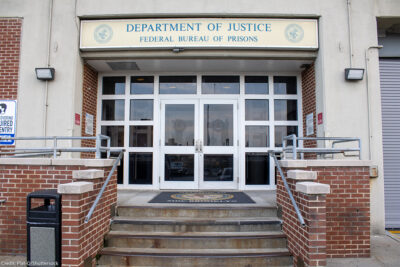Private Prisons
The ACLU works in courts, legislatures, and communities to defend and preserve the individual rights and liberties that the Constitution and the laws of the United States guarantee everyone in this country.

The Latest
-


ACLU Statement On FY24 Appropriations Bill Funding Immigrant Detention, Anti-Immigrant Policies
-

President Biden's Order to Ban Private Prisons Faces a Persistent Internal Challenge: The U.S. Marshals Service
-


U.S. Marshals Service Evades Biden Executive Order to End Contracts with Private Prisons, ACLU-Obtained Records Indicate
-

Captive Labor: Exploitation of Incarcerated Workers
Explore More
What's at Stake
While the nation’s unprecedented rate of imprisonment deprives individuals of freedom, wrests loved ones from their families, and drains the resources of governments, communities, and taxpayers, the private prison industry reaps lucrative rewards. As the public good suffers from mass incarceration, private prison companies obtain more and more government dollars, and private prison executives at the leading companies rake in enormous compensation packages. Private prison companies essentially admit that their business model depends on locking up more and more people. The American economy should not include locking people in cages for profit.
According to the Bureau of Justice Statistics, for-profit companies were responsible for approximately 7 percent of state prisoners and 18 percent of federal prisoners in 2015 (the most recent numbers currently available). U.S. Immigration and Customs Enforcement reported that in 2016, private prisons held nearly three-quarters of federal immigration detainees. Private prisons also hold an unknown percentage of people held in local jails in Texas, Louisiana, and a handful of other states. While supporters of private prisons tout the idea that governments can save money through privatization, the evidence is mixed at best—in fact, private prisons may in some instances cost more than governmental ones. These private prisons have also been linked to numerous cases of violence and atrocious conditions.
While the nation’s unprecedented rate of imprisonment deprives individuals of freedom, wrests loved ones from their families, and drains the resources of governments, communities, and taxpayers, the private prison industry reaps lucrative rewards. As the public good suffers from mass incarceration, private prison companies obtain more and more government dollars, and private prison executives at the leading companies rake in enormous compensation packages. Private prison companies essentially admit that their business model depends on locking up more and more people. The American economy should not include locking people in cages for profit.
According to the Bureau of Justice Statistics, for-profit companies were responsible for approximately 7 percent of state prisoners and 18 percent of federal prisoners in 2015 (the most recent numbers currently available). U.S. Immigration and Customs Enforcement reported that in 2016, private prisons held nearly three-quarters of federal immigration detainees. Private prisons also hold an unknown percentage of people held in local jails in Texas, Louisiana, and a handful of other states. While supporters of private prisons tout the idea that governments can save money through privatization, the evidence is mixed at best—in fact, private prisons may in some instances cost more than governmental ones. These private prisons have also been linked to numerous cases of violence and atrocious conditions.